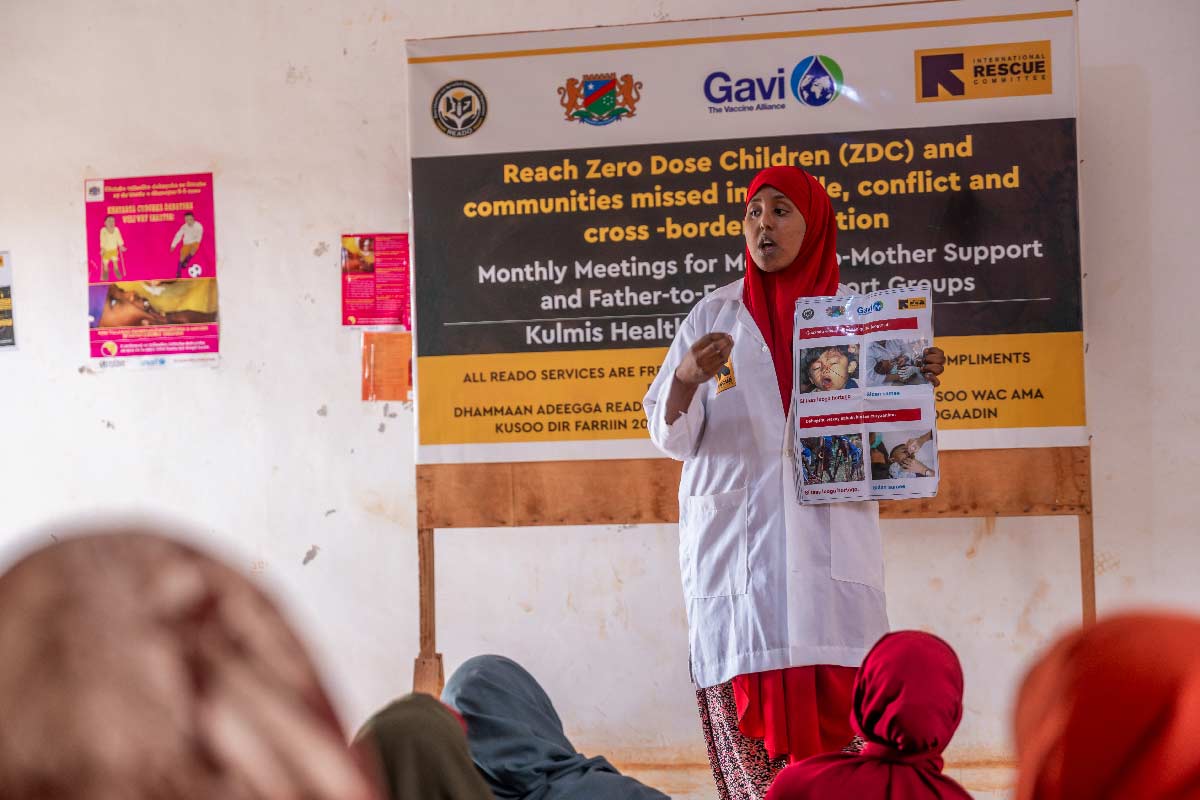Evaluating for Impact: what others can learn from Gavi’s zero-dose journey
How can large global health partnerships simplify funding, strengthen local systems and still deliver impact at scale?
- 10 November 2025
- 3 min read
- by American Evaluation Association 365

Hello, we are Anders Amaechi, Emma Yakutis, Audrey Beaulieu- Forest, Nathalie Gons, and Esther Saville of Gavi, the Vaccine Alliance. We are evaluation managers and commissioners working with and for global health partnerships. In this post, we share lessons from the year 2 annual evaluation of Gavi’s contribution to reaching zero-dose (ZD) children and missed communities, which other relevant organisations can apply when tackling complex, multi-stakeholder health challenges.
The zero-dose agenda – reaching children who have not received even a single vaccine shot .is one of the most difficult frontiers in immunisation. Gavi defines zero-dose children as infants who have not received the first dose of diphtheria, tetanus, and pertussis-containing vaccine (DTP1) by the end of their first year of life. Gavi’s evaluation revealed both barriers and enablers in designing and delivering ZD programmes, many of which hold broader relevance across global health.
Hot Tip: Simplify funding models
Complex funding processes can slow disbursement and reduce absorptive capacity at country level. Gavi’s efforts to test pooled funds and streamline grant procedures illustrate how simplification can lower transaction costs, reduce administrative burden and strengthen country ownership. Organisations should consider building flexibility into funding systems, especially for fragile and conflict-affected settings.
Lesson Learned: Build subnational capacity
Suboptimal absorption of cash grants and limited technical capacity at subnational level consistently constrained ZD delivery. Gavi is adapting by tailoring technical assistance and aligning funding levers to reach frontline implementers. The takeaway: programmes succeed or fail at subnational level. Investing in local financial management, planning and accountability systems is essential.
Hot Tip: Partnerships need shared leadership, not just broad coalitions
Gavi’s constellation of partners – UN agencies, civil society, private sector and governments – brought diverse strengths to programme implementation. However, alignment among global partners did not extend to subnational partnerships. The lesson is clear: partnership mechanisms must cascade beyond policy tables to local delivery and local leadership, with clear roles and responsibilities at all levels.
Lesson Learned: Make monitoring adaptive and real-time
The evaluation showed that compliance-heavy monitoring missed opportunities for learning and timely course correction. Gavi is now further exploring integrated, real-time monitoring and learning-oriented systems. Organisations can also benefit from moving beyond financial reporting to track performance, outcomes and lessons in ways that improve responsiveness.
Rad Resource:
The Gavi CSO fund manager mechanism model is a promising example of reducing barriers for civil society organisations. A fund manager consultancy manages grants to national and local CSOs to implement vaccination projects focused on increasing demand generation, community engagement and service delivery. Successful grantees are supported every step of the way, while maintaining accountability to the funder.
Have you read?
Takeaway:
Gavi’s zero-dose evaluation demonstrates that simplifying funding, investing in sub-national capacity, fostering shared leadership and adopting adaptive monitoring are critical steps for delivering impact. These lessons extend beyond immunisation and offer practical guidance for any organisation working in complex, multi-stakeholder environments.
More from American Evaluation Association 365
Recommended for you





